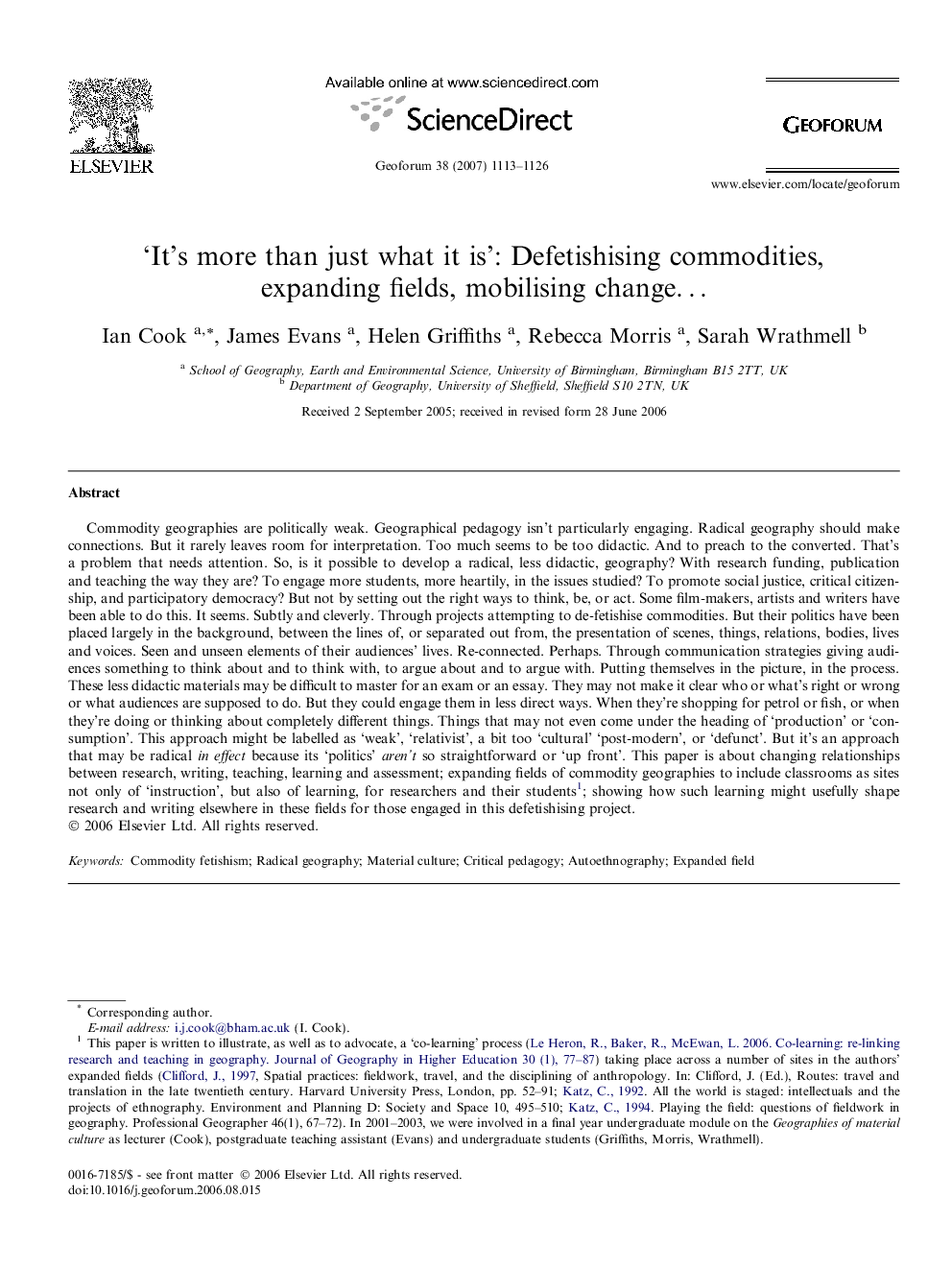| Article ID | Journal | Published Year | Pages | File Type |
|---|---|---|---|---|
| 5074897 | Geoforum | 2007 | 14 Pages |
Commodity geographies are politically weak. Geographical pedagogy isn't particularly engaging. Radical geography should make connections. But it rarely leaves room for interpretation. Too much seems to be too didactic. And to preach to the converted. That's a problem that needs attention. So, is it possible to develop a radical, less didactic, geography? With research funding, publication and teaching the way they are? To engage more students, more heartily, in the issues studied? To promote social justice, critical citizenship, and participatory democracy? But not by setting out the right ways to think, be, or act. Some film-makers, artists and writers have been able to do this. It seems. Subtly and cleverly. Through projects attempting to de-fetishise commodities. But their politics have been placed largely in the background, between the lines of, or separated out from, the presentation of scenes, things, relations, bodies, lives and voices. Seen and unseen elements of their audiences' lives. Re-connected. Perhaps. Through communication strategies giving audiences something to think about and to think with, to argue about and to argue with. Putting themselves in the picture, in the process. These less didactic materials may be difficult to master for an exam or an essay. They may not make it clear who or what's right or wrong or what audiences are supposed to do. But they could engage them in less direct ways. When they're shopping for petrol or fish, or when they're doing or thinking about completely different things. Things that may not even come under the heading of 'production' or 'consumption'. This approach might be labelled as 'weak', 'relativist', a bit too 'cultural' 'post-modern', or 'defunct'. But it's an approach that may be radical in effect because its 'politics' aren't so straightforward or 'up front'. This paper is about changing relationships between research, writing, teaching, learning and assessment; expanding fields of commodity geographies to include classrooms as sites not only of 'instruction', but also of learning, for researchers and their students1; showing how such learning might usefully shape research and writing elsewhere in these fields for those engaged in this defetishising project.
